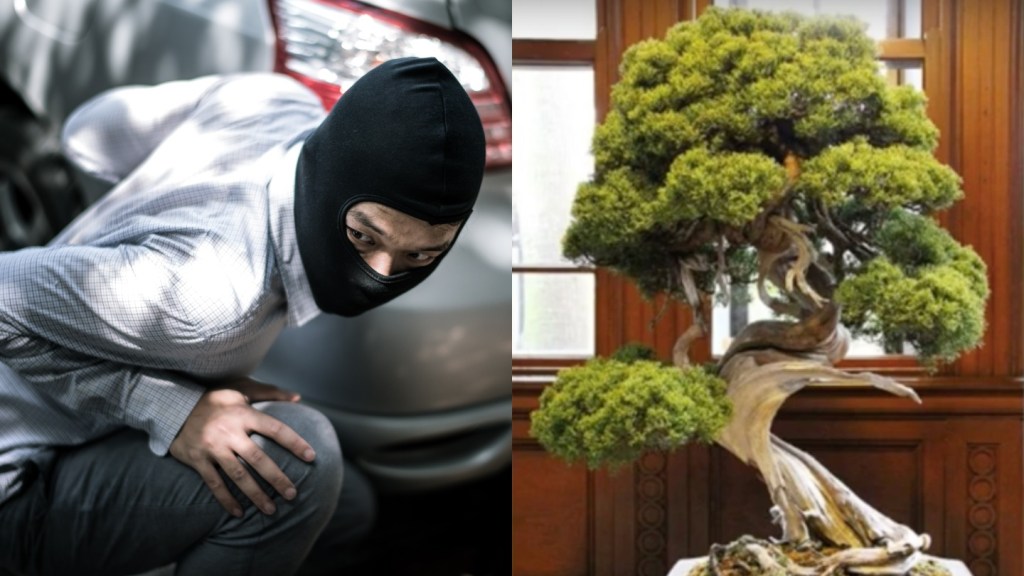Fuyumi Iimura calls the tree her “child.” The 400-year-old bonsai has been in her husband’s family for centuries and is estimated to be worth about $127,700. The ancient Shimpaku Juniper is one of seven bonsais that was stolen from the couple’s garden in Saitama prefecture, north of Tokyo, last month. The ABC reports that Fuyumi and her husband Seiji hope that every one of them will be returned in due course, but until then, all they ask is that the thieves take proper care of their “tree babies.”
Taking to Facebook, Fuyima shared a heartfelt post about her prize plant, admitting that “I’m so sad” and implores those responsible to take care of her tree. “The bonsai that [I] raised like my child… are you giving [it] water properly?” she wrote. Speaking to CNN earlier this week, she elaborated that “I want whoever took the bonsais to make sure they are watered. The shimpaku lived for 400 years. It needs care and can’t survive a week without water.”
Videos by VICE
The couple suspect that the thieves are likely professionals, as they allegedly identified the “most valuable trees” out of some 3,000 plants in the 12,000-acre garden. The bonsais—which also included three other Shimpaku Junipers of lesser value, as well as three miniature pine trees called Goyomatsus—were carried out over several nights in January.
“We treated these miniature trees like our children,” said Fuyima. “There are no words to describe how we feel. It’s like having your limbs lopped off.”
The 400-year-old Shimpaku was taken from the side of a mountain centuries ago, she revealed. Over several generations, Seiji’s family gradually shrunk the tree down to its miniature form—employing their comprehensive knowledge of plant physiology—until it was just one meter tall and about 70 centimetres wide. “It’s not something that can be done overnight,” Fuyima explained.
Bonsai is considered an art form in Japan, and stolen trees can be a lucrative seller’s item on the black market. The BBC reports that the Shimpaku Juniper is one of the most sought-after varieties among collectors and enthusiasts. In many cases the plants are shipped off to Europe, according to CNN, and Fuyima says “It’s hard to regain ownership of your tree once it’s switched hands.”
More important than getting her tree child back, though, is that it’s treated with care and kept alive after all this time. “They can live forever,” she says. “Even after we’re gone—if they receive the proper care.”
Follow Gavin on Twitter or Instagram
Sign up for our newsletter to get the best of VICE delivered to your inbox daily.
More
From VICE
-

Screenshot: Square Enix Collective -

Screenshot: Matt Vatankhah -

Getty Images -

Screenshot: Archetype Entertainment
